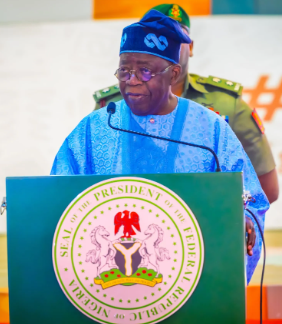By Jemimah Wellington, JKNewsMedia Reporter
THE FEDERAL Government has eliminated the contentious 18-year age benchmark for admission into Nigeria’s tertiary institutions, marking a pivotal shift in the nation’s educational policy.
This decision aims to expand access to higher education, allowing younger qualified students to pursue university studies without age restrictions.
The announcement was made by Education Minister Dr. Tunji Alausa during his inaugural press briefing in Abuja, where he also addressed broader plans to revamp the education system.
In his speech, Alausa emphasized the need for flexibility and inclusiveness within the nation’s academic framework.
“The 18-year age requirement no longer aligns with our educational goals of inclusivity and opportunity for all qualified students,” he said, stressing the government’s commitment to fostering a system that encourages youth empowerment through education.
Alausa further reiterated the government’s stance on maintaining educational standards, confirming that over 22,700 degree certificates from unaccredited institutions in Togo and Benin Republic have been declared invalid.
“The integrity of our education system is non-negotiable, and we will continue to protect it by cracking down on dubious qualifications,” Alausa affirmed.
His ministry’s uncompromising approach towards such fraudulent institutions reflects Nigeria’s growing effort to ensure academic credibility both within and outside the country’s borders.
Alausa also addressed broader concerns within Nigeria’s education sector, hinting at sweeping reforms.
He acknowledged the challenges that educational institutions face, including insufficient infrastructure, staffing shortages, and outdated curricula.
According to him, a major policy overhaul is underway, focused on creating a more adaptable system capable of meeting the diverse needs of Nigeria’s student population.
Stakeholders in the education sector have shown mixed reactions to these announcements.
While many welcome the removal of the age limit, expressing hope that it will encourage academic advancement for capable students regardless of age, others have voiced concerns over implementation.
Questions linger over how the policy change will impact admission procedures, particularly within federal institutions accustomed to the traditional age threshold.
The Ministry of Education has pledged to work closely with universities and regulatory bodies to ensure the smooth transition of this new policy.
Alausa reassured that guidelines will be issued to help institutions adapt without compromising academic standards.
His office is also committed to addressing the risks associated with unaccredited institutions, promising stricter regulation and oversight of cross-border academic credentials.
In a nation where access to quality higher education remains a challenge for many, the policy is seen as a step toward democratizing academic opportunities, Alausa stated.
He also said that as educational institutions prepare to adapt to this new admission standard, the government’s larger reform agenda promises to address long-standing sectoral issues, such as funding and quality assurance.
He adds that the government’s firm stance on the validity of degrees and inclusive education has sparked intense discussions among educators, parents, and students nationwide which is why the move to abolish the age limit reflects Nigeria’s evolving education landscape, where the demand for accessible and credible learning opportunities is at an all-time high.





